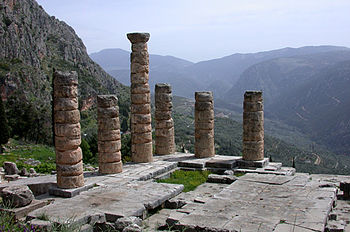|
|
| Jesus is considered by scholars such as Weber to be an example of a charismatic religious leader. (Photo credit: Wikipedia) |
Scholars say that Matthew 5-7, which we usually call the Sermon on the Mount, is really a compilation of the teaching of Jesus on the preaching tours he made in Galilee. It seems like it could be an old-fashioned camp meeting with people sitting on the ground in groups, ready made opportunities to discuss and explore his
teachings.
He began with the section we call the Beatitudes. In the King James Version each injunction begins with "Blessed" or in some versions is translated as "Happy."
Jesus is trying to impress them with the idea of righteousness in the heart rather than adherence to the law. In each thought he presents the Pharisee's teaching, then contrasts the heart attitude that produces acceptable obedience. God is not impressed by "letter of the law" obedience when the heart attitude is not present.
In the Beatitudes, verses 3-12, he urges the characteristic that he expects us to strive toward, and then tells the reward we may expect. He does not put any limit on the number of occurrences or how long it will take to achieve the blessed state.
Verses 13-14 refers to salt and light but does not put a limit or definition of time. It just says that believers are to perform these functions. Salt is a preservative and light reveals forms and shapes and truth. The believers are to perform these services to the world. You should be conscious of your responsibility to preserve God's truth and witness to it and reveal it to others.
Perhaps there had been rumors that Jesus would destroy the law, but in verses 17-20 he corrected that opinion. "I have not come to destroy the law, but to fulfill it," he assured them. Not even the dot over the i will be removed until God's Law is satisfied. You and I must be cognizant of the integrity with which we handle God's blessings and his word. He will not allow it to be mishandled.
In verses 21-30 Jesus equates anger against someone with violence. He calls for the same punishment against one who hates as against a murderer. If you hate another person you have begun to kill him. He warns that you must treat hate as a sin and reconcile with the person or God won't accept you sacrifice or honor your prayer.
In verses 31-32 Jesus takes a very hard line on divorce, but it is no more extreme than his stance on hate or obedience or adultery. Examine the thoughts and intents of your heart to find out if the sin you are denying is already lurking there.
He reproves all for taking an oath and swearing by God's name or heaven or earth in verses 33-37. Just stand by your word and be faithful to perform your job, keep your marriage vows, and pay your bills.
In verses 38-42 he addresses the issue of revenge against enemies. It was common practice to kill more than you suffered in battle, so the "eye for an eye, and tooth for tooth" was a measure of mercy. You were not supposed to take more lives or property than you have lost. Here Jesus says we shouldn't take revenge at all. Don't resist evil with evil. Overcome evil with good.
Beginning in verse 43 he says to love your enemies. Do good for them. To be called the Children of God we must use the standard he uses. He sends rain on the good and the evil and he makes the sun to shine on the just and the unjust. It is up to each individual what he does with God's blessings, but each will have the resources to make a crop. To be called Children of God means you must carry on his work and be shaped in his likeness. He is perfect: so should you be.






